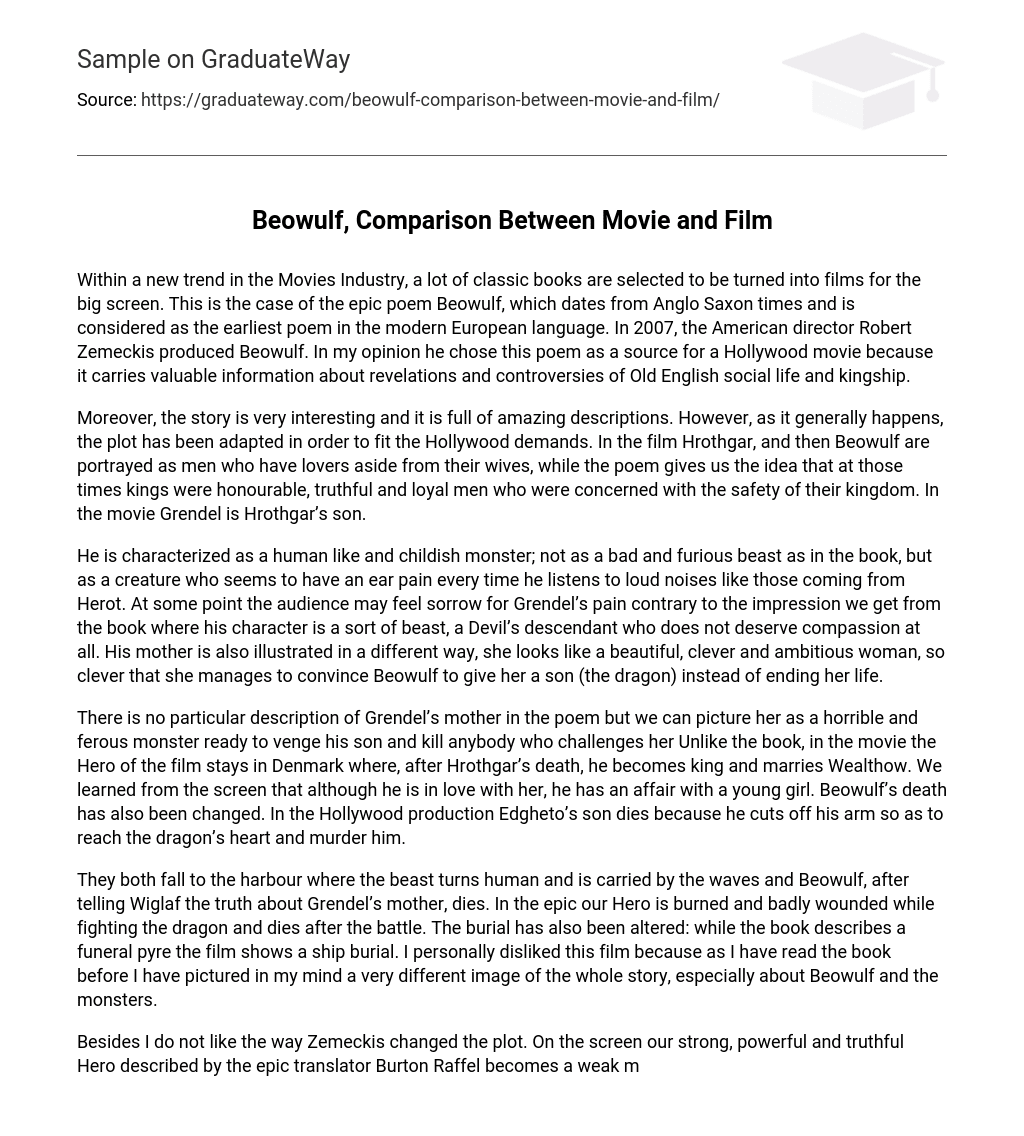The Movies Industry is currently embracing a new trend by selecting many classic books for film adaptations. An example of this trend is the epic poem Beowulf, which dates back to Anglo Saxon times and is known as the earliest poem in modern European language. In 2007, American director Robert Zemeckis accepted the challenge of adapting Beowulf into a movie. My belief is that Zemeckis chose this specific poem as source material for a Hollywood film because it provides valuable insights into the revelations and controversies surrounding Old English social life and kingship.
Furthermore, the narrative is captivating and brimming with incredible depictions. Nonetheless, adhering to the customary practice, the storyline has been modified to meet the requirements of Hollywood. In the film, Hrothgar and later Beowulf are depicted as individuals with extramarital affairs, whereas the poem conveys that kings during that era were honorable, honest, and loyal men who prioritized their kingdom’s safety. Additionally, in the movie, Grendel is portrayed as Hrothgar’s son.
The portrayal of Grendel in this adaptation differs from the book, presenting him as a human-like and childish monster rather than a violent and vicious beast. This is emphasized by his apparent discomfort whenever he hears loud noises, such as those emanating from Herot. As a result, the audience may feel sympathy towards Grendel’s pain, a contrast to the book where he is depicted as a beastly character, a descendant of the Devil who elicits no compassion. Similarly, Grendel’s mother is depicted differently, appearing as a beautiful, intelligent, and ambitious woman. She is so cunning that she successfully convinces Beowulf to spare her life and instead have a son (the dragon).
The poem does not provide a specific description of Grendel’s mother, but we can imagine her as a dreadful and fierce monster bent on avenging her son and killing anyone who challenges her. In contrast to the book, the movie depicts the protagonist remaining in Denmark after Hrothgar’s death, where he becomes king and weds Wealthow. The film reveals that, despite his love for her, he engages in an affair with a young girl. The manner of Beowulf’s demise is also altered. In the Hollywood adaptation, Edgetho’s son perishes by severing his arm to reach the dragon’s heart and slay it.
Both Grendel’s mother and Beowulf fall into the harbor. Grendel’s mother transforms into a human and is carried away by the waves. Beowulf, after confessing the truth about Grendel’s mother to Wiglaf, dies. In the epic, our hero is severely burned and injured while battling the dragon and passes away post-battle. The burial scene differs in the book and film: the book depicts a funeral pyre, while the film showcases a ship burial. Personally, I disliked the film because, having previously read the book, I had imagined a completely different portrayal of the story, particularly regarding Beowulf and the monsters.
Despite my dislike for Zemeckis’ alteration of the plot, I find the movie captivating. Our heroic protagonist, as portrayed by the renowned translator Burton Raffel, is transformed into a weak individual succumbing to human temptations. However, the director’s choice of exceptional actors, skillfully implemented 3D effects, and well-placed music greatly contribute to the success of this Hollywood production.





